I am trying to make a simple number game and want to store the values in the sqlite3 database and I don't want to make other users see the database or edit it, I have tried using authoriser it works but only within the code, when i try to edit / delete in code it throws an exception but when i try to change the values in sqlite3 studio it changed and got updated THE AUTHORISER CODE I WROTE IS
def authoriser(action, args1, b, db_name, source):
if action == sqlite3.SQLITE_SELECT and args1 == "run":
return sqlite3.SQLITE_OK
elif action == sqlite3.SQLITE_DELETE and args1 == "run":
return sqlite3.SQLITE_DENY
elif action == sqlite3.SQLITE_READ and args1 == "run" and b == 'hash2':
return sqlite3.SQLITE_OK
return sqlite3.SQLITE_OK
the db in sqlite3 studio before deleting

The db after deleting it

it compiles and execute perfectly but the problem is i can edit it in sqlite3 studio or any GUI